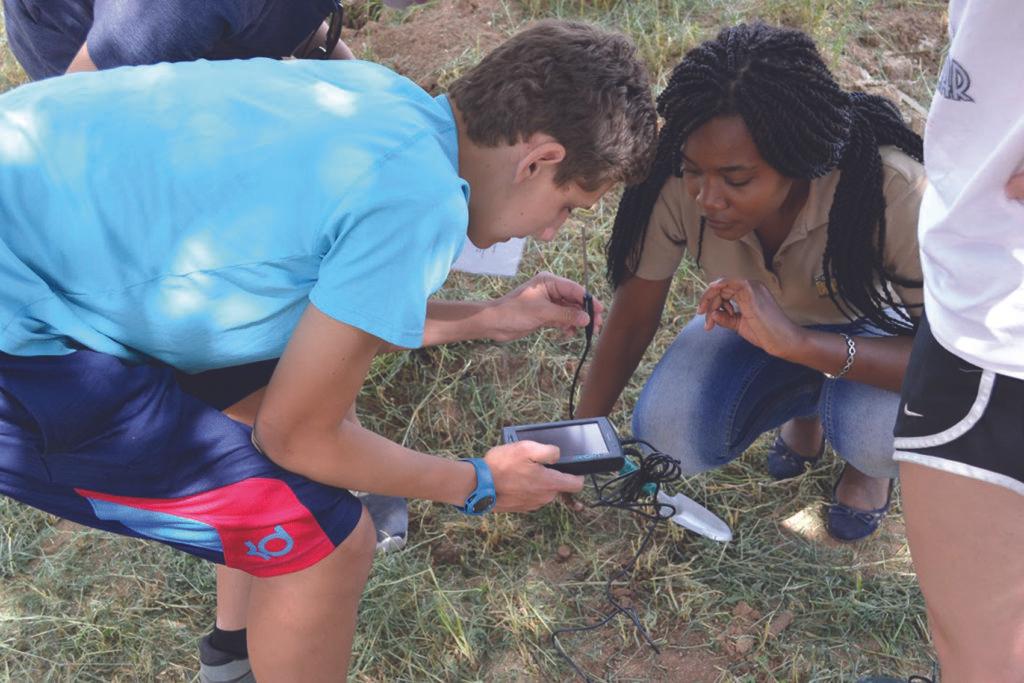
Animal behavior can sometimes be predicted, and Vernier technology can help students make those predictions. In Namibia, the Cheetah Conservation Fund (CCF) is using LabQuest 2 and a variety of Vernier sensors at their Field Research and Education Center to help students study the local ecology, including learning about and exploring the habitat preferences of cheetahs.
Cheetahs tend to hunt in the early morning or late afternoon to avoid the hottest time of the day. Once they have made a kill, they find a relatively cool and secluded place to rest, cool off from the exertion of the hunt, and consume their prey. In this guided inquiry activity, students compared three locations to determine which one would be the best choice for a cheetah to rest and eat on a hot day. Using LabQuest 2 and Vernier sensors, the students measured temperature, relative humidity, soil moisture, and light level. They also made general observations on the amount of cover provided in each area. Based on their data, they were asked to choose which of the three sites would be preferable for the cheetah and to defend their choice.
This is just one of the activities co-developed by Stephanie Bradley, Education Manager at CCF, and Donna Rainboth, a visiting professor from Eastern Oregon University. As part of Rainboth’s sabbatical, she traveled to Namibia with a mission to develop STEM education activities. At CCF, Namibian students and teachers, many with limited or no access to technology, are given the opportunity to use the equipment while expanding their knowledge about the local habitat and its wildlife. International student groups can also use the Vernier equipment at CCF to experience hands-on, relevant learning opportunities focused on cheetahs.
Every habitat is unique. Can you think of a way your students could use probeware to investigate a nearby habitat?
Download the “Students Explore Cheetah Habitats” lesson and sample data »
For more information on the Cheetah Conservation Fund, including their educational initiatives, visit www.cheetah.org
